10 Disgusting But Expensive Things
Nathan Johnson
Published
04/17/2016
in
eww
when you got the money and got to have it
- List View
- Player View
- Grid View
Advertisement
-
1.
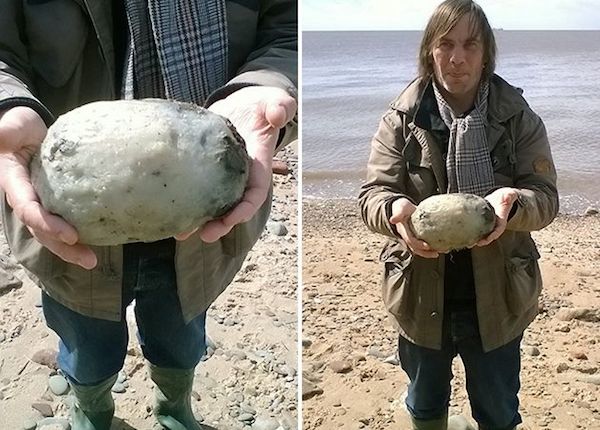 An Overton, Lancashire couple, Gary and Angela Williams, are in negotiations with potential buyers after stumbling across a valuable piece of ambergris during a stroll on the beach. Ambergris, otherwise known as whale vomit, is used by perfumers to make scents last longer and can fetch very high prices because of its rarity. The 1.57kg lump of the substance found by the couple could be worth around £50,000 ($70,000). Ambergris is secreted in the bile duct and intestines of sperm whales and is thought to be produced to ease the passage of hard, sharp objects that the whale might have eaten. And, no, it doesn't smell great. Gary Williams said it has a distinctive scent, "like a cross between squid and farmyard manure.”
An Overton, Lancashire couple, Gary and Angela Williams, are in negotiations with potential buyers after stumbling across a valuable piece of ambergris during a stroll on the beach. Ambergris, otherwise known as whale vomit, is used by perfumers to make scents last longer and can fetch very high prices because of its rarity. The 1.57kg lump of the substance found by the couple could be worth around £50,000 ($70,000). Ambergris is secreted in the bile duct and intestines of sperm whales and is thought to be produced to ease the passage of hard, sharp objects that the whale might have eaten. And, no, it doesn't smell great. Gary Williams said it has a distinctive scent, "like a cross between squid and farmyard manure.” -
2.
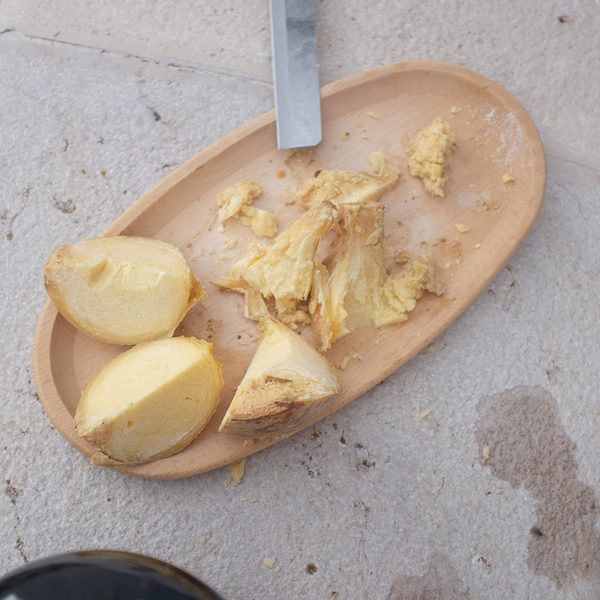 You've entered a whole new class of repulsiveness when you bite into Casu Marzu— a putrefied cheese infested with live, wriggling maggots. To craft this noxious specialty, Sardinian cheese makers encourage the cheese fly to lay eggs in their pecorino cheeses. Maggots then release an enzyme during their digestion that causes the cheese's fat to putrefy. This unique fermentation process yields a sticky, gluey, gummy mass, still teeming with the worms, and ready to be eaten. It is advisable when taking a bite of Casu Marzu to cover your eyes to protect them from the maggots, who can and do leap up to six inches off the cheese, with malevolent precision. (Too squeamish? Seal the cheese in a paper bag. The oxygen-deprived maggots will jump off the cheese in an attempt to escape; when the pitter patter of their dying flops subsides, you can safely dive in!) Casu Marzu is illegal (the reasons are obvious as to why), but this is not to say it can't be had. As a black market delicacy, it is sold just under the radar at markets for about $100 a pound.
You've entered a whole new class of repulsiveness when you bite into Casu Marzu— a putrefied cheese infested with live, wriggling maggots. To craft this noxious specialty, Sardinian cheese makers encourage the cheese fly to lay eggs in their pecorino cheeses. Maggots then release an enzyme during their digestion that causes the cheese's fat to putrefy. This unique fermentation process yields a sticky, gluey, gummy mass, still teeming with the worms, and ready to be eaten. It is advisable when taking a bite of Casu Marzu to cover your eyes to protect them from the maggots, who can and do leap up to six inches off the cheese, with malevolent precision. (Too squeamish? Seal the cheese in a paper bag. The oxygen-deprived maggots will jump off the cheese in an attempt to escape; when the pitter patter of their dying flops subsides, you can safely dive in!) Casu Marzu is illegal (the reasons are obvious as to why), but this is not to say it can't be had. As a black market delicacy, it is sold just under the radar at markets for about $100 a pound. -
3.
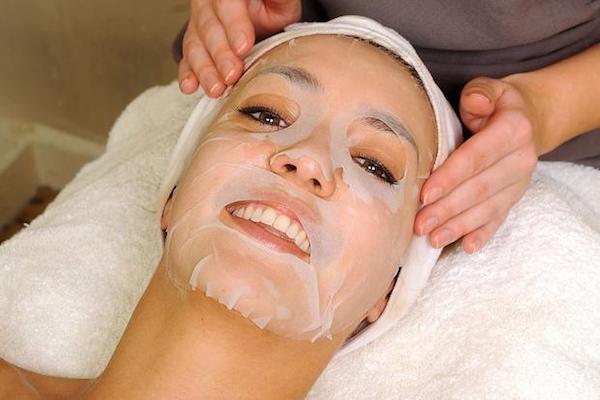 Celebs from Kim Kardashian and Harry Styles to Victoria Beckham flock to skincare expert Louise Deschamps for her $500 sheep placenta facial, which she claims boosts skin immunity and helps fight inflammation. The science behind the serum argues that stem cells in the animal's afterbirth encourage new tissue growth and regeneration. While it's been said to smell "like sweat mixed with vinegar," it's also been rumored to yield positive results
Celebs from Kim Kardashian and Harry Styles to Victoria Beckham flock to skincare expert Louise Deschamps for her $500 sheep placenta facial, which she claims boosts skin immunity and helps fight inflammation. The science behind the serum argues that stem cells in the animal's afterbirth encourage new tissue growth and regeneration. While it's been said to smell "like sweat mixed with vinegar," it's also been rumored to yield positive results -
4.
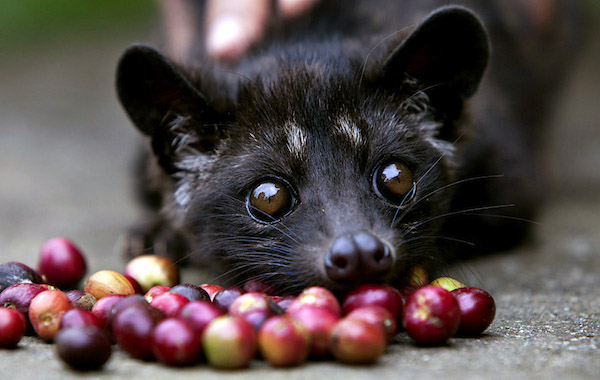 Kopi Luwak is the world's priciest coffee. The drink is brewed from beans swallowed and excreted by Indonesian civet cats, small mammals that look something like a cross between cats and weasels. The coffee sells for as much as $90 per cup. Civets once roamed free on plantations, feeding on coffee cherries at night. After the animals eat the flesh of the ripe coffee cherries, their digestive system apparently imparts a smooth body and aroma to the beans, which emerge whole on the other side. Their droppings are then collected, cleaned, roasted and brewed. But these days, the vast majority of civet farms cage their animals to maximize production. Since the craze began, there have been several investigations into the treatment of captive civet cats. Critics say isolating the animals in cages and feeding them only coffee cherries is cruel and leads to erratic behavior and self-inflicted injuries.
Kopi Luwak is the world's priciest coffee. The drink is brewed from beans swallowed and excreted by Indonesian civet cats, small mammals that look something like a cross between cats and weasels. The coffee sells for as much as $90 per cup. Civets once roamed free on plantations, feeding on coffee cherries at night. After the animals eat the flesh of the ripe coffee cherries, their digestive system apparently imparts a smooth body and aroma to the beans, which emerge whole on the other side. Their droppings are then collected, cleaned, roasted and brewed. But these days, the vast majority of civet farms cage their animals to maximize production. Since the craze began, there have been several investigations into the treatment of captive civet cats. Critics say isolating the animals in cages and feeding them only coffee cherries is cruel and leads to erratic behavior and self-inflicted injuries. -
5.
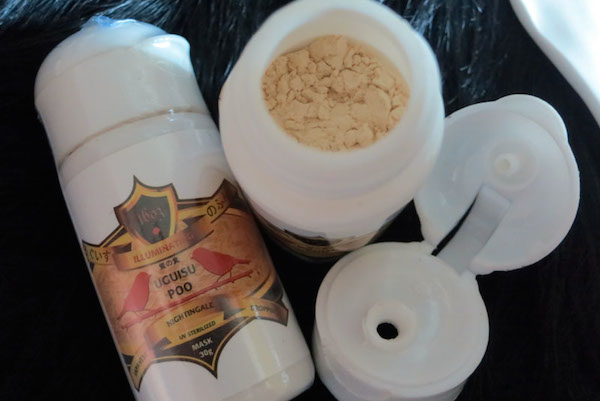 Bird poop for beauty? That's what goes into facials at a luxury spa where the traditional Japanese treatment of using imported Asian nightingale excrement mixed with rice bran goes for $180 a pop. Both sexes flock to Shizuka New York skin care salon each month to get the treatment, which is promoted as a way to keep the face soft and smooth using an enzyme in the poop to gently exfoliate the skin. While relatively rare in the United States, it is popular in Japan where actors and geishas first employed it in the 1600s. If the price is too hard on your wallet, you can buy the ingredients online for a lot less and do it yourself. Also, a common misconception is that any old bird poop will do, but only droppings from the nightingale will work—the species lives on seeds, producing the natural enzyme that is the active ingredient.
Bird poop for beauty? That's what goes into facials at a luxury spa where the traditional Japanese treatment of using imported Asian nightingale excrement mixed with rice bran goes for $180 a pop. Both sexes flock to Shizuka New York skin care salon each month to get the treatment, which is promoted as a way to keep the face soft and smooth using an enzyme in the poop to gently exfoliate the skin. While relatively rare in the United States, it is popular in Japan where actors and geishas first employed it in the 1600s. If the price is too hard on your wallet, you can buy the ingredients online for a lot less and do it yourself. Also, a common misconception is that any old bird poop will do, but only droppings from the nightingale will work—the species lives on seeds, producing the natural enzyme that is the active ingredient. -
6.
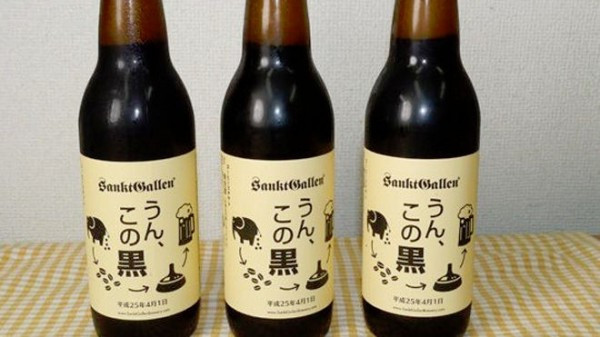 In 2013, Japanese based brewery Sankt Gallen decided to make their beer a special kind of way—using coffee beans made of elephant dung. Un, Kono Kuro, a play on the Japanese word for "crap," sold out in minutes despite its high price, which can be attributed to the cost to make it. Originating from the digestive system of animals in Thailand's Golden Triangle Elephant Foundation, the beans cost £65 ($99) for 35g. While it sounds gross initially, those who've tasted it give Un, Kono Kuro rave reviews.
In 2013, Japanese based brewery Sankt Gallen decided to make their beer a special kind of way—using coffee beans made of elephant dung. Un, Kono Kuro, a play on the Japanese word for "crap," sold out in minutes despite its high price, which can be attributed to the cost to make it. Originating from the digestive system of animals in Thailand's Golden Triangle Elephant Foundation, the beans cost £65 ($99) for 35g. While it sounds gross initially, those who've tasted it give Un, Kono Kuro rave reviews. -
7.
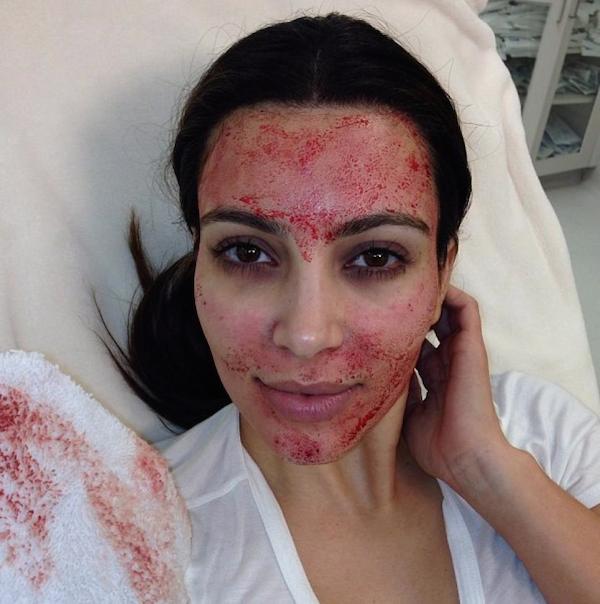 In 2013, Kim Kardashian tweeted a shot of her blood-spattered face after a gruesome $1,500 spa treatment that promises younger, firmer-looking skin. The Vampire Facelift, trademarked by Alabama doctor Charles Runels, draws blood from the patient's arm and separates the platelets into a platelet-rich plasma (PRP) using a centrifuge. The plasma is then combined with Restylane or Juvederm and injected into the face to stimulate collagen production, and to remove fine lines and acne scars. The 45-minute facelift was such a hit in Hollywood that a gift certificate for the painful procedure was included in that year's Academy Awards gift bag.
In 2013, Kim Kardashian tweeted a shot of her blood-spattered face after a gruesome $1,500 spa treatment that promises younger, firmer-looking skin. The Vampire Facelift, trademarked by Alabama doctor Charles Runels, draws blood from the patient's arm and separates the platelets into a platelet-rich plasma (PRP) using a centrifuge. The plasma is then combined with Restylane or Juvederm and injected into the face to stimulate collagen production, and to remove fine lines and acne scars. The 45-minute facelift was such a hit in Hollywood that a gift certificate for the painful procedure was included in that year's Academy Awards gift bag. -
8.
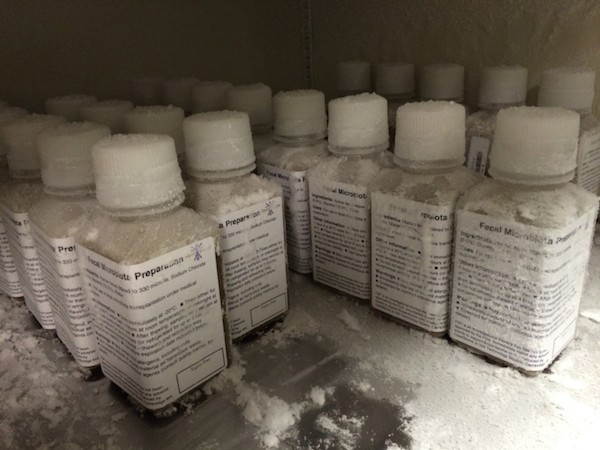 This is a gross but worthwhile cause. Thanks to a nonprofit organization called OpenBiome, you can cash in to the tune of $13,000 a year by selling your poop, and save lives while you're at it. That's right—your frozen stool is administered to patients who are very sick with an illness called C. difficile. The bacteria in C. difficile can cause extreme gastrointestinal distress, leaving some sufferers housebound. By introducing healthy fecal matter into the gut of a patient (by way of endoscopy, nasal tubes, or swallowed capsules) doctors can abolish the disease for good. Finding a donor is tough, and some patients grow so desperate that they treat themselves with fecal matter from friends and family. That's what happened to a friend of OpenBiome's founders, inspiring them to open up the first nationwide bank. So far, they've shipped about 2,000 treatments to 185 hospitals around the country. It's not easy money, however. You don't just have to be healthy; you have to be really healthy. OpenBiome's donation procedure may be as easy as your standard bowel movement, but the selection process makes giving blood look like a walk in the park.
This is a gross but worthwhile cause. Thanks to a nonprofit organization called OpenBiome, you can cash in to the tune of $13,000 a year by selling your poop, and save lives while you're at it. That's right—your frozen stool is administered to patients who are very sick with an illness called C. difficile. The bacteria in C. difficile can cause extreme gastrointestinal distress, leaving some sufferers housebound. By introducing healthy fecal matter into the gut of a patient (by way of endoscopy, nasal tubes, or swallowed capsules) doctors can abolish the disease for good. Finding a donor is tough, and some patients grow so desperate that they treat themselves with fecal matter from friends and family. That's what happened to a friend of OpenBiome's founders, inspiring them to open up the first nationwide bank. So far, they've shipped about 2,000 treatments to 185 hospitals around the country. It's not easy money, however. You don't just have to be healthy; you have to be really healthy. OpenBiome's donation procedure may be as easy as your standard bowel movement, but the selection process makes giving blood look like a walk in the park. -
9.
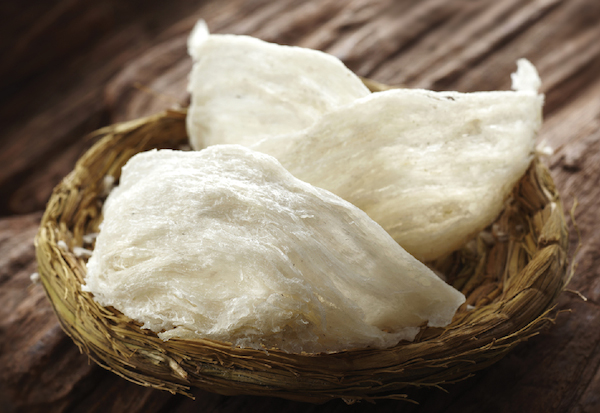 Birds nest soup is made from the nest of a few particular types of swiftlets. But don't picture, as most do, a nest made of twigs, grass, and mud—this nest is composed entirely of the bird's saliva. Yum! The saliva in question has a glue-like, stringy consistency, and is a mucoglycoprotein (a protein coupled with a carbohydrate). It contains high levels of calcium, iron, magnesium and potassium. The soup is made by soaking or steaming the nest in water, and serving it after it has dissolved into a gelatinous texture. When dry, has a consistency of a petrified sponge. Birds nest soup has been considered a delicacy in China since the Tang Dynasty (618-907 AD). Chinese MDs have been prescribing the soup to treat asthma, bronchitis, skin ailments, and to boost energy. It costs a whopping $40-$60 per bowl and $2,000 per kilo. Eat up!
Birds nest soup is made from the nest of a few particular types of swiftlets. But don't picture, as most do, a nest made of twigs, grass, and mud—this nest is composed entirely of the bird's saliva. Yum! The saliva in question has a glue-like, stringy consistency, and is a mucoglycoprotein (a protein coupled with a carbohydrate). It contains high levels of calcium, iron, magnesium and potassium. The soup is made by soaking or steaming the nest in water, and serving it after it has dissolved into a gelatinous texture. When dry, has a consistency of a petrified sponge. Birds nest soup has been considered a delicacy in China since the Tang Dynasty (618-907 AD). Chinese MDs have been prescribing the soup to treat asthma, bronchitis, skin ailments, and to boost energy. It costs a whopping $40-$60 per bowl and $2,000 per kilo. Eat up! -
10.
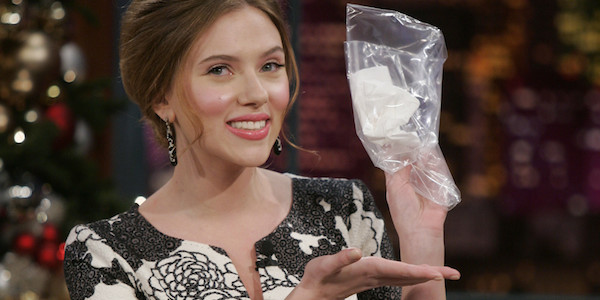 In 2008, a tissue used by actress Scarlett Johansson sold for $5,300 at auction. She claimed she caught a cold from her co-star Samuel L. Jackson during an appearance on America's The Tonight Show with Jay Leno. Leno handed her a tissue, and she gave her nose a good blow before joking the snotty cloth could have some value. Johansson put her money where her...nose was when she put it on eBay the next day, with proceeds benefiting food-gathering charity USA Harvest.
In 2008, a tissue used by actress Scarlett Johansson sold for $5,300 at auction. She claimed she caught a cold from her co-star Samuel L. Jackson during an appearance on America's The Tonight Show with Jay Leno. Leno handed her a tissue, and she gave her nose a good blow before joking the snotty cloth could have some value. Johansson put her money where her...nose was when she put it on eBay the next day, with proceeds benefiting food-gathering charity USA Harvest.
- NEXT GALLERY
-

- 10 TOP MEMES Of The Day
An Overton, Lancashire couple, Gary and Angela Williams, are in negotiations with potential buyers after stumbling across a valuable piece of ambergris during a stroll on the beach. Ambergris, otherwise known as whale vomit, is used by perfumers to make scents last longer and can fetch very high prices because of its rarity. The 1.57kg lump of the substance found by the couple could be worth around £50,000 ($70,000). Ambergris is secreted in the bile duct and intestines of sperm whales and is thought to be produced to ease the passage of hard, sharp objects that the whale might have eaten. And, no, it doesn't smell great. Gary Williams said it has a distinctive scent, "like a cross between squid and farmyard manure.”
10/10
1/10
Categories:
Eww


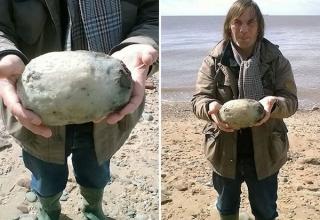


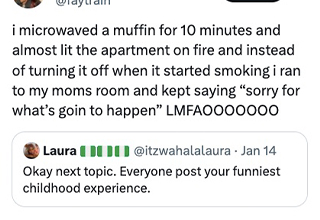


0 Comments